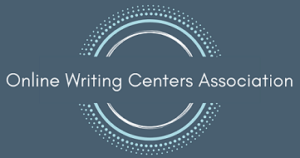Keywords
Asynchronous, Synchronous, Faculty relationships, Multimodal texts
First Paragraph
In academic circles, one might assume that any entity that fosters the very critical thinking, challenge, and collaboration that constitute the foundation of higher learning would command due respect and appreciation. However, as we all know, such is not always true in the case of writing centers. Although such centers of intellectual activity have made their way onto the majority of college campuses in the United States, all too many students and even instructors are suspicious, critical, and largely misinformed about our services…Hence, I contend that tutors can elevate the image of the writing center across the university by incorporating technology on as many levels as possible, thereby not only connecting with professors and growing with the students’ needs but also, as Eric Crump puts it, “increasing [our] chances of survival into the next century.” The services that we currently offer lend themselves nicely to such a transition. According to Muriel Harris, “Because writing centers focus on one-to-one interaction with writers and because they invite collaboration and dialogue about writing as part of their tutorial approach, on-line programs developed in various writing centers are continuing this emphasis as they reach out to writers in new ways” (1).
Citation Information
Type of Publication: Newsletter Article
Author: Katie Hupp Stahlnecker
Year of Publication: 1998
Title: “Virtually Transforming the Writing Center: On-line Conversation, Collaboration, and Connection”
Publication: Writing Lab Newsletter, Volume 23, Issue 2
Page Range: 1-4
